#Mr. Woodhouse
Text
Reading Emma again and it's crazy how much of her life is handling or manipulating her father. It's constant. Like even in just the first three chapters:
"Let me remind you very calmly for the millionth time, papa. The carriage driver would be happy to go to Randalls, remember? Remember how we agreed about this?"
"Yes father, I will give Miss Bates a small bit of tart" (gives entire tart) "Yes papa, our eggs are very wholesome, one will not hurt Mrs. Bates" (gives Mrs. Bates three) "Yes papa, gruel is delicious" (passes around the wine and tarts again)
It is basically her job to be manipulative. Because her father both wants guests and wants to starve them (the only dinner Emma misses, Mrs. Bates doesn't get to eat). The only way to keep her father happy is to sneakily do stuff he hates.
Is it any wonder she manipulates Harriet "for her own good"? That's how she has been trained to behave! She's been gaslighting her father for the greater good for 8 years!! She's taught a way to survive her situation that works well and then you expect her not to use it in other areas of her life?
#emma#emma woodhouse#mr. woodhouse#jane austen#she's a gaslight girlboss but for the greater good#some sort of adaptation where she has mind control powers#but she's only supposed to use them on her dad#but of course she can't resist using them on other people
544 notes
·
View notes
Text
Mr. Woodhouse: Miss Taylor got married and you're probably going to get married soon too so now I need to get a snake.
Emma Woodhouse: Uh huh, why is that?
Mr. Woodhouse: If I'm gonna be an old lonely man I'm gonna need a thing, you know, a hook. Like that guy down the street who eats his own face. So I figure I'll be crazy man with a snake. You know crazy snake man. Then I'll get more snakes, call them my babies. Kids won't walk past my place, they will run. "Run away from crazy snake man!" They'll shout.
14 notes
·
View notes
Text
BACKGAMMON (noun) - a board game in which two players move their pieces around twenty-four triangular points according to the throw of dice, the winner being the first to remove all their pieces from the board.
Emma spared no exertions to maintain this happier flow of ideas, and hoped, by the help of backgammon, to get her father tolerably through the evening, and be attacked by no regrets but her own.
- Emma by Jane Austen, Vol. I, Ch. 01, p. 90.
#langblr#language learning#english vocabulary#learning english#english studyblr#language#books and literature#vocabulary#emma#jane austen#mr. woodhouse#books#bookbookbook#lit#languages#english#language stuff#lingblr#foreign languages#learning languages#language resources
2 notes
·
View notes
Text
Mr. Woodhouse being hilarious pt.2 (ft. Emma trying to tell him to chill)

Mr. Woodhouse when someone tosses a child like 3 inches up in the air:

#‘tosses them up to the ceiling’ it the 18 hundreds and they live in a mansion the ceilings probably 17 feet high!#he’s so dramatic I love him#the way he acts like Isabella’s been kidnapped#she moved like an hour away#emma#Mr. Woodhouse#jane austen
4 notes
·
View notes
Text

#Emma#mr. woodhouse#jane austen#it’s like someone transported the spirit of my grandmother back 200 years#periodlit
17 notes
·
View notes
Text
21st October: N. takes M.
Read the post and comment on WordPress
Read: Vol. 3, ch. 19; p. 319 (“and Mr. Elton was called on” to “perfect happiness of the union”).
Context
Emma and Mr. Knightley marry. Mrs. Elton complains.
We know that this occurs “within a month” (p. 319) of Harriet and Robert Martin’s wedding in late September.
Readings and Interpretations
Very Little Lace
The description of Emma and Knightley’s wedding is dispatched rather tersely (it “was very much like other weddings, where the parties have no taste for finery or parade”), and it shares a sentence with almost the last thing we hear, the “discordant note” sounded by Mrs. Elton’s “irritating flummery” (Restuccia, p. 464).
Unsurprisingly, critics have widely divergent readings of the significance of this closing. A conventional reading holds that it does not detract from—that it even enhances—the prospect of our principles’ marital happiness. Bruce Stovel argues that, given that Mrs. Elton embodies “Emma’s worst qualities,” this final paragraph points to the expurgation of “the vain side of her own character”:
This passage tells us that Emma’s wedding ceremony is as un-Augustalike as possible: all the things that make the ceremony perfect, the absence of finery and parade and white satin, are seen by Mrs. Elton as deficiencies. The passage also tells us, slyly, in the words “from the particulars detailed by her husband,” that Mrs. Elton was not at the wedding; she has been excluded […]. (n.p.)
Similarly, L. J. Swingle argues that this juxtaposition encourages us to “experience this perfect union as some thing rising up against and triumphing over Mrs. Elton’s denigrating remarks”:
There is no universal agreement here, but rather a sort of warfare: on the one side, Mrs. Elton and her camp; on the other, the “small band of true friends,” whose predictions and hopes for the union are so perfectly answered. The pleasure this affords is that of observing conflict, and of seeing a desired element win out over an opposing force. […] [A]n essential part of our enjoyment in Jane Austen depends upon a principle of separation, the tension that exists between the Mrs. Eltons of society and the small band joined in celebration of union. Such satisfaction is grounded in a yearning for distinction, and thereby also exclusion. (p. 314)
For Joann Ryan Morse, however, it is Mrs. Elton’s inclusion in the broader community, even as she is excluded from the “small band of friends,” that is emphasized: “We make our life out of the circumstances life provides—[…] so we must meet and live with Mrs. Elton too, forever: with a hard-head [sic] as well as a genial spirit. Emma is a model of social inclusiveness and moral realism” (n.p.).
Other commenters take a dimmer view of Mrs. Elton’s intrusion. Roger Sales reads it in the context of the social and economic forces exerting change in Jane Austen’s time: he writes that the novel’s final marriages, with their promise of “bringing together Harriet of illegitimate birth, Robert Martin, tenant farmer, Knightley, landed-proprietor, and Emma of ancient stock,” provide “a mental prospect or idea of the nation only, without material evidence to substantiate it” (p. 104)). Against this background it is “significant, perhaps, that almost the last word in the novel is awarded to Mrs Elton as voice of the new force of individualistic competitive consumption […]” (ibid).
For Frances Restuccia, Mrs. Elton’s “fatuous comments” are a symptom of a “melancholia of the text” which, “rather than relinquishing signs, generates signs that are ‘absurd’ (Kristeva 1989, 47)” (p. 464). This melancholia is also evidenced by the “clichéd (dead)” nature of the “happily ever-after conclusion [‘the wishes, the hopes, the confidence, the predictions of the small band of true friends who witnessed the ceremony, were fully answered in the perfect happiness of the union’], a strangely vapid (and incongruously mixed) plenitude” (p. 464).
Perfect Happiness?
Restuccia is not alone in feeling that the ending of Emma is an unhappy one; critics prophesy doom from various quarters. G. B. Stern laments, on account of Mr. Woodhouse’s continued oppression of the young couple: “Oh, Miss Austen, it was not a good solution; it was a bad solution, an unhappy ending could we see beyond the last pages of the book” (p. 239). On this “solution” Bernard Paris writes:
It is difficult to say whether Emma and Knightley have (theoretically) any acceptable alternative to living at Hartfield. As Jane Austen presents the situation, it is unthinkable either for Emma to leave her father or for Mr. Woodhouse to move to Donwell. Either course, we are made to feel, would result in his death. The only solution which the author can sanction is to have Emma and Knightley submit to Mr. Woodhouse’s claims, to sacrifice their autonomy, and to live a life of “continual endurance.” This may be, in fact, the only way of reconciling the demands of morality with the actualities of the situation; but, as some readers have felt, it is hardly a happy ending. Since the death of Mr. Woodhouse is the only possible source of relief, the reader is left wishing for it, and imagining the suppressed impatience of Emma and Knightley, at the end of the novel. Emma’s oversolicitude about her father may well be, in fact, a defense against unconscious desires for his disappearance. The only way she can remain free of guilt when he dies is to hover about him, protecting him from every disturbing influence. (pp. 94–5)
For other critics, the problem lies in the characters of Emma and Knightley themselves. Eugene Goodheart writes that, given that “the much older Knightley [has found] himself mostly in the role of admonisher of Emma’s behavior,” “it is hard to see how such a relationship can thrive in the long tenure of marriage except perhaps as entertainment in fiction—unless Emma outgrows that dear insubordinately willful part of her nature. Is that possible, and if possible is it desirable? Without certainty I am inclined to see Emma as irredeemable in her autonomy” (p. 604). Marvin Mudrick, less sympathetic to Emma, reads the narrator’s projection of “perfect happiness” as ironic in tone: “there is no happy ending, no easy equilibrium, if we care to project confirmed exploiters like Emma and Churchill into the future of their marriages” (p. 206).
William Deresiewicz argues that this irony is discoverable through close attention to the text itself: “we can hear the dark notes of the ending only if our ear has been properly tuned by the rest of the narrative” (p. 53).
[...] [A]ll three of those key words—“perfect,” “happiness,” and “union”—have been so ironized by the novel’s handling of them as to make it a matter of very grave doubt whether they are not rather to be avoided. The “union” of that last sentence echoes the language of the first, where “Emma Woodhouse, handsome, clever, and rich, with a comfortable home and a happy disposition, seemed to unite some of the best blessings of existence” [vol. 1, ch. 1; p. 1]. This first union, as we have seen, is in fact the start of all her woe […].
“Happiness” and its derivatives are words that—aside from also being compromised right from the beginning by that talk of Emma’s “happy disposition”—belong, above all, to Miss Bates and Mrs. Elton. […]
As for “perfect,” no word in the book is as insistently or emphatically undermined. Of the dozens of times it or its derivatives appear, almost none is without qualification or irony, the leading example being the conundrum devised by Mr. Weston, that moral imbecile, on the very heels of Emma’s cruelty to Miss Bates: “What two letters of the alphabet are there, that express perfection?” […] Wicked indeed is the game Austen plays with us throughout the novel, flattering us with our ability to see past Emma’s blindness about Elton only the better to rub our noses in our own blindness about Frank, conjuring seductive appearances that continually giving [sic] way to hidden, hinted-at realities of a less pleasant nature. The logic of the novel’s language makes its final statement into just such another happy deception, one that leaves us with a story in which nothing gets settled, an apparently “perfect” work that terminates in nothing but loose ends, a novel that refuses to stop playing games with us. (pp. 53–4)
Perfect Happiness!
For Wayne C. Booth, however, the discovery of irony in the final lines of Emma is part of a “reaction to an earlier generation that overdid the picture of ‘gentle Jane’”—but this “fashion[]” “underplay[s] the value of tenderness and good will in Jane Austen” (1961, p. 110 FN 11). He writes that “if we look at Emma and Knightley as real people, this ending will seem false” (ibid.); however, “the sense of ‘perfectedness’ or completion, the sense obviously intended by Jane Austen,” is embodied in the ending of the novel when it is considered as a created work (p. 111):1
[...] [I]t is precisely because this ending is neither life itself nor a simple bit of literary irony that it can serve so well to heighten our sense of a complete and indeed perfect resolution to all that has gone before. If we look at the values that have been realized in this marriage and compare them with those realized in conventional marriage plots, we see that Jane Austen means what she says: this will be a happy marriage because there is simply nothing left to make it anything less than perfectly happy. It fulfills every value embodied in the world of the book […] It is a union of intelligence: of “reason,” of “sense,” of “judgement.” It is a union of virtue: of “good will,” of generosity, of unselfishness. It is a union of feeling: of “taste,” “tenderness,” “love,” “beauty.”
[...] All of the cheap marriage plots in the world should not lead us to be embarrassed about our pleasure in Emma’s and Knightley’s marriage. It is more than just the marriage: it is the rightness of this marriage, as a conclusion to all of the comic wrongness that has gone before. The good for Emma includes both her necessary reform and the resulting marriage. Marriage to an intelligent, amiable, good, and attractive man is the best thing that can happen to this heroine, and the readers who do not experience it as such are, I am convinced, far from knowing what Jane Austen is about […]. (pp. 110–1)
Similarly, Malcolm Bradbury, writing in 1962, argues that
The ‘end’ of the book beautifully enforces the weight and meaning of the book; the waters clear, and all the significances are laid bare in a simple delaying action which enables Jane Austen to make clear all the inadequacies of her characters and the moral lesson to be learned from them. Repentance in Emma is delayed to the last and therefore most effective moment, and it comes after a train of thought in which we see Emma affected, involved, pressed into realisation of her follies. On top of understanding comes marriage, a right resolution to the plot in that it enforces the significance of true understanding. The preparation is over and by extending the novel indefinitely by a closing sentence referring to “the perfect happiness of the union” Jane Austen assures us that it is an effective understanding that Emma has come to. (p. 342)
Rachel Brownstein’s reading, like Booth’s, relies on the idea that the novel’s ending signposts its own contrived, comic nature:
[T]he last words of Emma emphasize the social spirit of comedy. The ending transforms Emma’s wedding into an abstraction—a union—among other abstractions like wishes, hopes, confidence, and happiness. Doing so, it puts Emma and her life at a distance. […]
Jane Austen charms us by permitting us to share with her this detached view of brides and grooms. Separated from Emma in the end, we no longer share her subjective reality, her anxiety to understand the world and herself; but we perceive her understanding with Mr. Knightley sympathetically, seeing it as a distant analogue of our understanding with the narrator. So we can enjoy feeling detached and connected at once. To be an amused spectator of marriages seems, in the end, quite as delightful and companionable as marrying is. The reader can eat her romantic cake and have it, too, and even hedge her bets on Emma’s happiness ever after. (p. 211)2
Where Do We Go from Here?
Amidst these contradictory readings, what do we all agree on, and what are we sure of? Little to nothing. Thorell Tsomondo writes that Emma “creates illusions, makes us aware that what may appear to be a statement of clarification may be but the reformulation of the problem. And nowhere is this phenomenon more palpably felt than in the novel’s ending” (p. 79):
The language of exclusion dominates the passage. The reader is shown what the wedding is not: no “finery”, no “parade”. We are told that the ceremony is witnessed by a “small band of true friends”; that Mrs Elton, not part of the “small band”, knows about the wedding only by report. Yet in naming Mrs Elton and emphasizing her absence, and in invoking her “never seen” Selina, the final paragraph of the novel brings Mrs Elton, her finery and parade into relief so sharply that she threatens to obscure the bride. Her voice echoes too in the very language that insists on her absence. In “the small band of true friends, fully, answered in… perfect happiness” (emphasis added), the sentiment may be the bride’s […], but the sense of overstatement, “true”, “fully”, “perfect”, is characteristically Mrs Elton’s. It encapsulates her vocabulary of superlatives and false aristocratic exclusiveness […]. The language of the final paragraph bears at once the pressures of absence and presence, of measure and excess.
[...] Further, in having “the wishes, the hopes, the confidence, the predictions of the small band of true friends. . . fully answered” in the wedding, the novel doubles back upon itself. Emma has been without wishes, hopes, confidence, predictions and weddings; all, up to this point, catalogue a series of false assumptions and lessons in reinterpretation. (p. 80)
Is the result of this ‘final’ reinterpretation, then, sure to be the ‘correct’ solution (morally or politically)? Have we arrived, through the novel’s final marriages, at a full (and therefore static) reckoning with reality—with morality, “intelligence,” “virtue,” sympathy, “feeling” (Booth, p. 110)? Have we arrived at a stable (and therefore, presumably, desirable) vision of political possibility—of “probability,” “eligibility” [E vol. 1, ch. 9; p. 48], and Burkean unity in stratification that foreclose upheaval? Many critics point out that “the novel’s conclusion arranges the characters in their proper social places” (Poovey, n.p.)—but what is the significance of this fact?
Cecily Devereux argues that, at the close of Emma,
Impropriety and secrecy are banished; everything is, as Emma puts it, “decided and open,” and is thus, paradoxically, closed. That is, in banishing secrecy and impropriety, Emma closes her own channels for expression: her conversion from Miss Woodhouse to Mrs. Knightley is conjoined with her conversion from “joking” at the beginning of the novel to “musing” at its end. Emma, in the end, subdues its own inherent impropriety and covert subversion. (p. 53)
Crucially, however, it does not do so in an unobtrusive, naturalized way: “Emma foregrounds the construction of a decorous order by interrupting the narrative and the social exchanges it portrays with ludic subversions which always draw attention to the fragility of the order they rupture” (p. 54). If Emma “submits in the end to the patriarchal order,” it is “not, however, without providing the reader with all the clues necessary to solve the mystery of the disappearing heroine that is the subtext and the critical game of Austen’s fiction” (ibid.).
Tsomondo identifies a similar closing-off of possibility at the novel’s end:
Through prior ordering and a number of displacements Austen’s plot, fraught at the outset with the tensions of inequality and possibility, resolves itself with predictable propriety into the neat Emma-Knightley, Fairfax-Churchill, Harriet-Martin linkages. Disparities still exist but now they are contained, as tradition would have them, in parallel units.
The metaphor, marriage, and the rigid paradigmatic class system within which it functions, produces the sense of a violent freezing of the metonymic movement and textual interplay which up to now has lent to the narrative the dynamic instability and openness that characterized it. The nineteenth-century novelistic convention of happy marriages provides a convenient ending to the work, and the class dimension may say much about Austen’s own feeling concerning the ingredients for happy marriages […]. (p. 81)
However, as do many other Austen critics, he draws a distinction between the broad plot movements and surface significations of Austen’s marriage plots on the one hand, and the covert implications of her systems of irony and epistemological questioning on the other: he claims that “the text finally resists this formulaic closure. Emma remains a discourse about art as a system of constantly shifting signification, where meaning is always at the level of interpretation, resisting solidification into moral, social or political abridgement” (ibid).
For every critic who traces conservatism in the lines of Austen’s plots, there is another ready to discover irony in her textual surfaces, a wink and a nudge in the laconic sketchiness of her romantic conclusions—to claim that Austen is trying to “make a conventional form work, while making it work for matters unconventional” (Booth 1983, n.p.)—to identify a distinction between an “aesthetic resolution” and a “genuine social solution” (Poovey).3 Perhaps it is the nature of a novel that warns us of the perils of attempting to reduce signs to a predictable system to appear to be always one step ahead.
Footnotes
Harper notes “complete, full, finished, lacking in no way” as a definition of “perfect” from the late 14th century.
See also Brownstein on how “Jane Austen assumes her reader understands this plot’s conventional nature” and will “take the long comic view of Emma Woodhouse”: “The heroine’s marriage—one of several, as usual in comedy—is presented as a conventional arrangement from the literary and the social points of view” (p. 211).
For other readings that confirm the happiness of Emma’s ending, at least insofar as Emma and Knightley’s marriage is concerned, see Duckworth (pp. 177–8); Trilling (pp. 58–9); Tave (pp. 254–5) (Duckworth admits “some ‘doubt in the case’” as to the marriage of Frank Churchill and Jane Fairfax).
Of course we must not assume that a depicted solution must be a recommended one; neither should we envision “conservatism” versus “radicalism” or “subversion” as wholly dichotomous; nor should we theorize a homogeneous ‘hegemony’—a ‘patriarchal’ order that encompasses domination along the lines of both sex and rank (or ‘gender’ and ‘class’)—as though it were not possible to resent male rule while upholding the natural rightness of aristocratic rule, or vise versa. A more granular picture of what, exactly, is being subverted or upheld in Austen is necessary in order to articulate her political views based on her work, if indeed such a thing is possible. On the interplay of “class” and “sex” in Emma see Johnson (p. 127).
Discussion Questions
Why are Mrs. Elton’s prosaic grumblings allowed to intrude on the final paragraph of the novel?
Does Emma have a “happy ending”? What is meant by this phrase—an ending that would be joyful if it occurred in reality? A good solution to a narrative problem (where we may understand “happy” as in “fitting, appropriate, convenient” as well as “content, joyful”)? An ending that makes a reader joyful? Should we read “perfect happiness” as something “flawlessly joyful” or something “completely appropriate”?
Is Emma ‘ultimately’ a conventional, didactic domestic comedy? Is it an artwork that argues, at the metatextual level, about the epistemological and signatory problems we encounter when interpreting art? Does it have anything to say about how we ‘should’ read and interpret signs in our everyday lives (making it, as a text, both didactic and focused on epistemic systems)? What assumptions do we make when we construct an argument about what this text (or any text) ‘is’?
Bibliography
Austen, Jane. Emma (Norton Critical Edition). 3rd ed. Ed. Stephen M. Parrish. New York: W. W. Norton & Company, [1815] 2000.
Booth, Wayne C. “Point of View and the Control of Distance in Emma.” Nineteenth-Century Fiction 16.2 (September 1961), pp. 95–116. Repr. in The Rhetoric of Fiction. 2nd Ed. Chicago: University of Chicago Press, 1983, pp. 243–66.
Bradbury, Malcolm. “Jane Austen’s Emma.” Critical Quarterly 4 (1962), pp. 335–46. DOI: 10.1111/j.1467-8705.1962.tb01434.x.
Brownstein, Rachel M. “Why We Reread Jane Austen.” In Why Jane Austen? New York: Columbia University Press (2011), pp. 195–236.
Deresiewicz, William. “Emma: Ambiguous Relationships.” In Jane Austen and the Romantic Poets. New York: Columbia University Press (2004), pp. 86–126.
Devereux, Cecily. “‘Much, Much beyond Impropriety’: Ludic Subversions and the Limitations of Decorum in Emma.” Modern Language Studies 25.4 (Autumn 1995), pp. 37–56. DOI: 10.2307/3195487.
Duckworth, Alistair M. “Emma and the Dangers of Individualism.” In The Improvement of the Estate: A Study of Jane Austen’s Novels. Baltimore, ML: John Hopkins Press, 1971, pp. 145–78.
Goodheart, Eugene. “Emma: Jane Austen’s Errant Heroine.” The Sewanee Review 116.4 (Fall 2008), pp. 589–604. DOI:10.1353/SEW.0.0087.
Harper, Douglas. “Etymology of perfect.” Online Etymology Dictionary. Accessed 20 October, 2022.
Johnson, Claudia L. “Emma: ‘Woman, Lovely Woman, Reigns Alone’.” In Jane Austen: Women, Politics, and the Novel. Chicago: University of Chicago Press (1988), pp. 121–43.
Kaye-Smith, Sheila, and G. B. Stern. Speaking of Jane Austen. New York: Harper & Brothers (1944).
Morse, Joann Ryan. “The Course of True Love Never Did Run Smooth: Shakespearean Comedy in Emma.” Persuasions On-Line 26.1 (Winter 2005).
Mudrick, Marvin. Jane Austen: Irony as Defense and Discovery. Princeton: Princeton University Press (1952).
Paris, Bernard. “Emma.” In Character and Conflict in Jane Austen’s Novels: A Psychological Approach. Detroit: Wayne State University Press (1978), pp. 64–95.
Poovey, Mary. “The True English Style.” Persuasions 5 (1983), pp. 10–12.
Restuccia, Frances L. “A Black Morning: Kristevan Melancholia in Jane Austen’s Emma.” American Imago 51.4 (Winter 1994), pp. 447–69.
Sales, Roger. Jane Austen and Representations of Regency England. Routledge: London (1996).
Stovel, Bruce. “Comic Symmetry in Jane Austen’s Emma.” Dalhousie Review 57.3 (1977), pp. 453–65.
Swingle, L. J. “The Perfect Happiness of the Union: Jane Austen’s Emma and English Romanticism.” The Wordsworth Circle 7.4 (Autumn 1976), pp. 312–19.
Tave, Stuart. “The Imagination of Emma Woodhouse.” In Some Words of Jane Austen. Chicago: University of Chicago Press (1973), pp. 205–55.
Trilling, Lionel. “Emma.” Encounter 8.6 (June 1957), pp. 49–59.
Tsomondo, Thorell. “Emma: A Study in Textual Strategies.” English Studies in Africa 30.2 (1987), pp. 69–82. DOI: 10.1080/00138398708690840.
19 notes
·
View notes
Photo

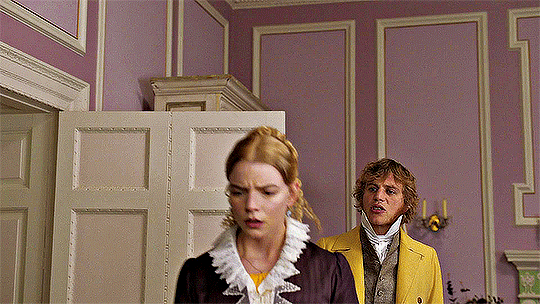
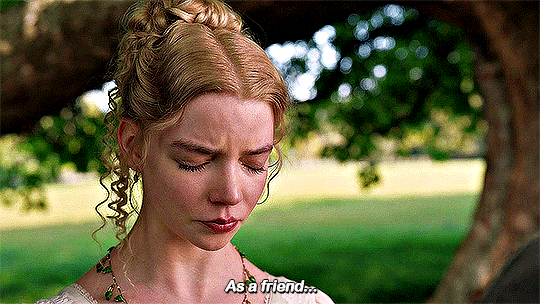
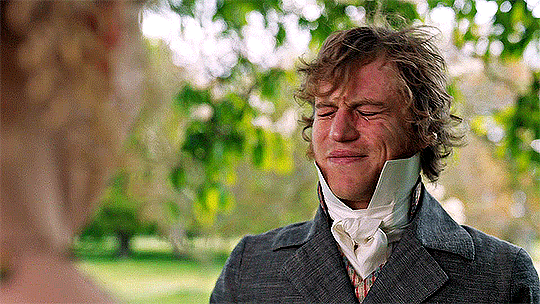
As a friend, Emma, that, I fear, is a word...
EMMA. (2020) Dir. Autumn de Wilde
#emma 2020#emma woodhouse#mr knightley#emma x knightley#autumn de wilde#jane austen#austen quotes#movie: emma.#period drama#perioddramaedit#austenedit#anyataylorjoyedit#**#jane austen tag#period drama tag#**pd#**ja
9K notes
·
View notes
Text


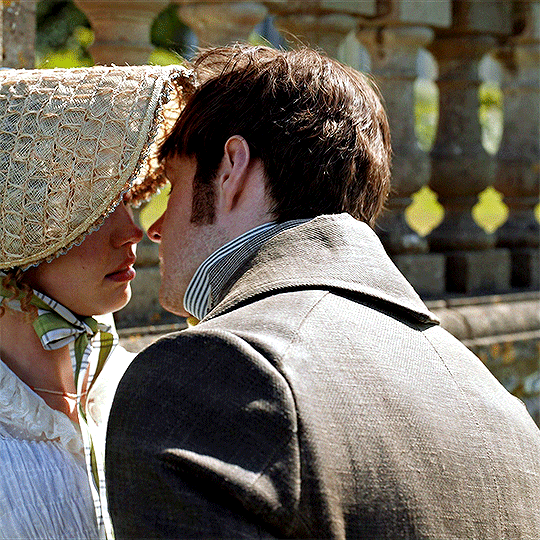
EMMA. (2020) dir. Autumn de Wilde

#emma.#perioddramaedit#romanceedit#emmaedit#austenedit#filmedit#userbennet#tuserbea#tusereliza#userpavlova#userbeccaa#emma 2020#emma x knightley#emma woodhouse#george knightley#miss taylor#mr. weston#harriet smith#robert martin#anya taylor joy#johnny flynn#*film#*
732 notes
·
View notes
Text
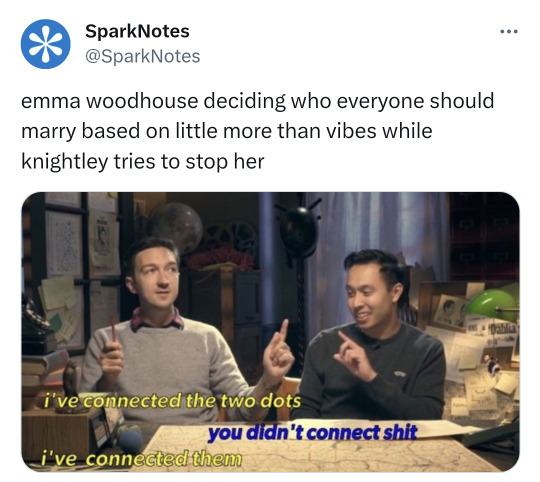
#emma#jane austen#emma woodhouse#spark notes twitter#spark notes#spark notes meme#spark notes killing the queue#literature meme#buzzfeed unsolved#buzzfeed unsolved meme#mr knightley#george knightley
960 notes
·
View notes
Text

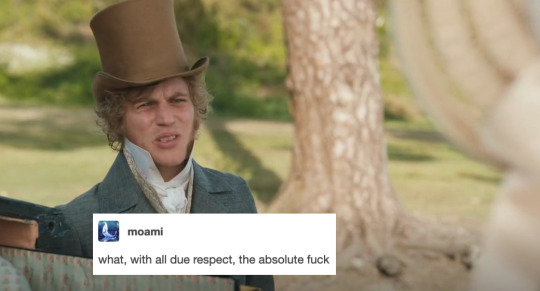
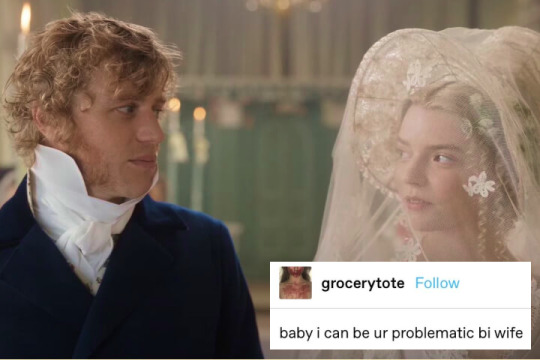
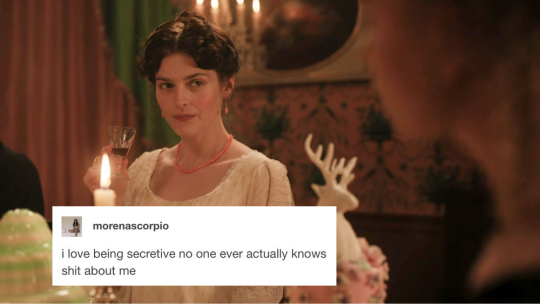
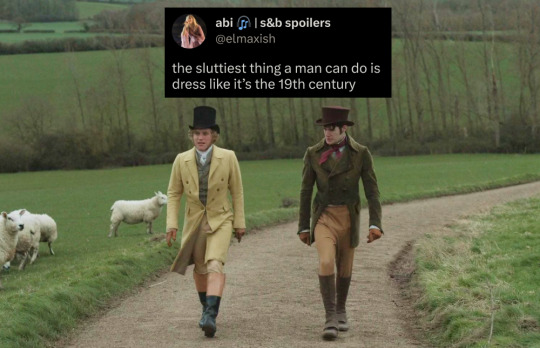


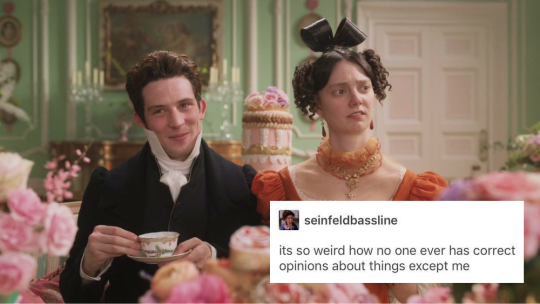
Emma. 2020 text posts
More: Sense and Sensibility 1995 text posts | Northanger Abbey 2007 text posts
#emma memes#emma#jane austen memes#jane austen#english lit memes#emma 2020#text posts#emma woodhouse#mr knightley#jane fairfax#mrs elton#harriet smith#robert martin#anya taylor joy#johnny flynn#my stuff
683 notes
·
View notes
Text
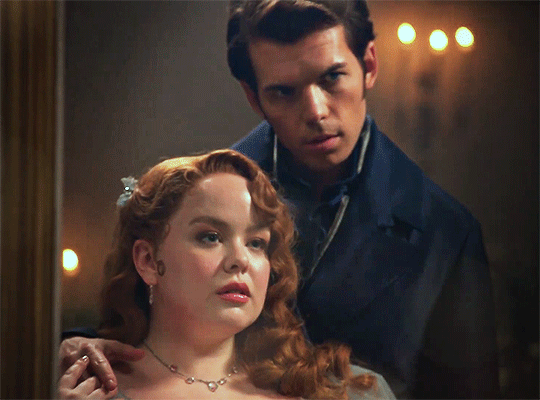
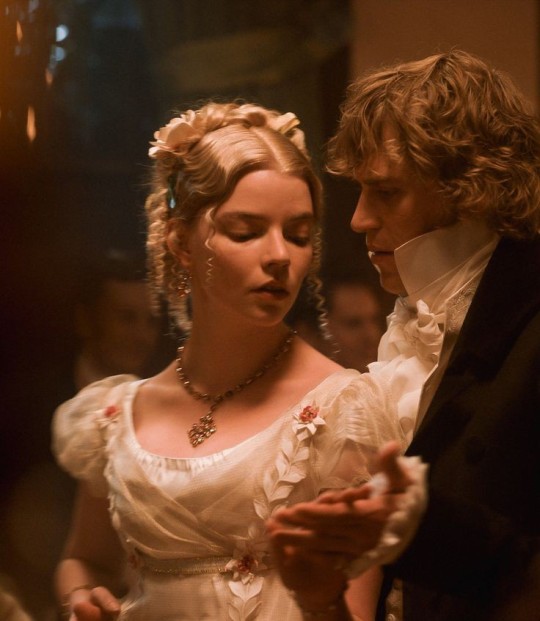
So we know that Bridgerton took a lot of inspiration from Pride and Prejudices for season 2 and I feel like their taking a lot of inspiration from Jane Austen's Emma for season 3. Both Penelope featherington and Emma Woodhouse are considered to be bironic heroines and there romantic partners both have a hero complex. Both couple's start out as friends and grow into lover's after a journey of growth and understanding each other on a deeper level. Basically I believe that Colin will be the Mr Knightley to Penelope's Emma.
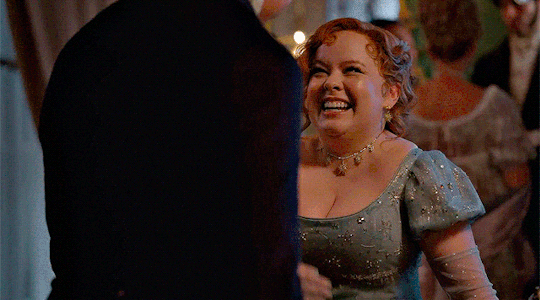


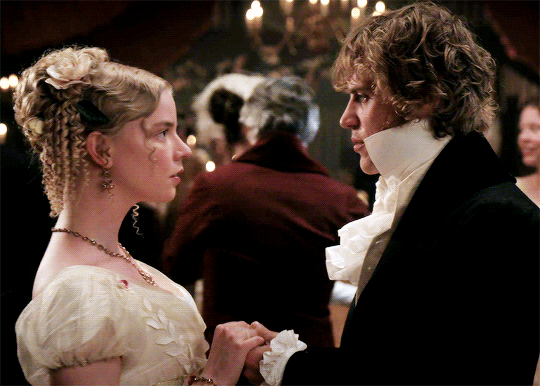
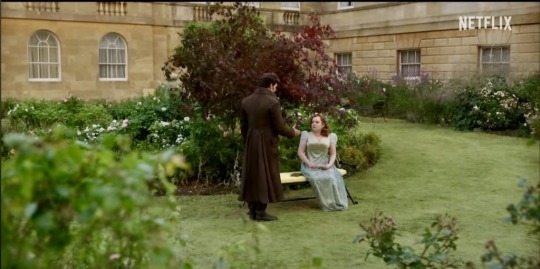
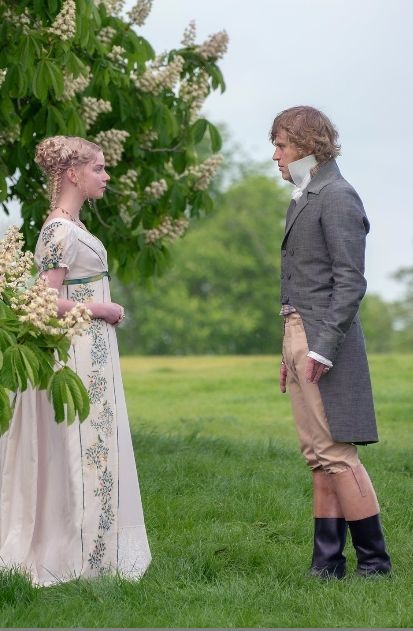
#bridgerton#polin#colin x penelope#penelope featherington#colin bridgerton#emma 2020#emma woodhouse#mr knightley#bridgerton season 3
213 notes
·
View notes
Note
If you could ask Jane Austen one question what would it be?
One question... that's just unfair. I want an entire day-long interview! But if I must...
If it counts as a question I would ask, "Can you please lay out the basic planned plot of Sandition?" and then I would write the rest out myself in as close imitation of her style as I could manage. Or if I have unlimited time I want her to dictate as much of it as possible.
However, that isn't really a question question. So here, "Is Mr. Woodhouse actually ill or were you imagining him as a hypochondriac?"
If I was trying to solve an online debate I'd ask if Mr. Darcy is socially awkward or an arrogant snob, but I really think she'd look at me with an incredulous expression and ask if I read the whole book. Especially the part during the second proposal when Darcy says, "I was an arrogant snob."
#jane austen#question response#sandition#mr. woodhouse#arrogant snob and socially awkward aren't mutually exclusive#emma
67 notes
·
View notes
Text
Mr. Woodhouse walks in to see George Knightley and Emma Woodhouse kissing
Mr. Woodhouse: Unhand her, death-bringer!
Emma Woodhouse: Uh, father, I'm not sure what you think is going on here, but that's an overreaction any way you cut it.
4 notes
·
View notes
Text
VALETUDINARIAN (noun) - a person who is unduly anxious about their health.
The evil of the actual disparity in their ages (and Mr. Woodhouse had not married early) was much increased by his constitution and habits; for having been a valetudinarian all his life, without activity of mind or body, he was a much older man in ways than in years […]
- Emma by Jane Austen, Vol. I, Ch. 01.
#langblr#language learning#english vocabulary#learning english#english studyblr#language#books and literature#vocabulary#emma#jane austen#mr. woodhouse#emma woodhouse#languages#fragments#lit#books to read#english#book tumblr#goodreads#book lovers#booklover
2 notes
·
View notes
Text
Watching Jane Austen adaptations back to back makes me realize that making Knightley not very tall was a bold decision in Emma because for some reason every single director synced minds and agreed on making every single male lead just fucking super tall. (Plus Jane was into that shit so they’re really respecting her wishes)
#pride and prejudice#northanger abbey#sense and sensibility#emma woodhouse#emma 2020#mr darcy#mr knightley#Mr Tinley#bless Tinley for being 6’4#jane austen
201 notes
·
View notes
Text

Emma. (2020) dir. Autumn de Wilde
#emma.#emma 2020#jane austen#anya taylor joy#johnny flynn#emma woodhouse#mr knightley#george knightley#emma x mr knightley#emmaedit#emma2020edit#janeaustenedit#filmedit#period drama#perioddramaedit#parallels#picspam#my edit
212 notes
·
View notes